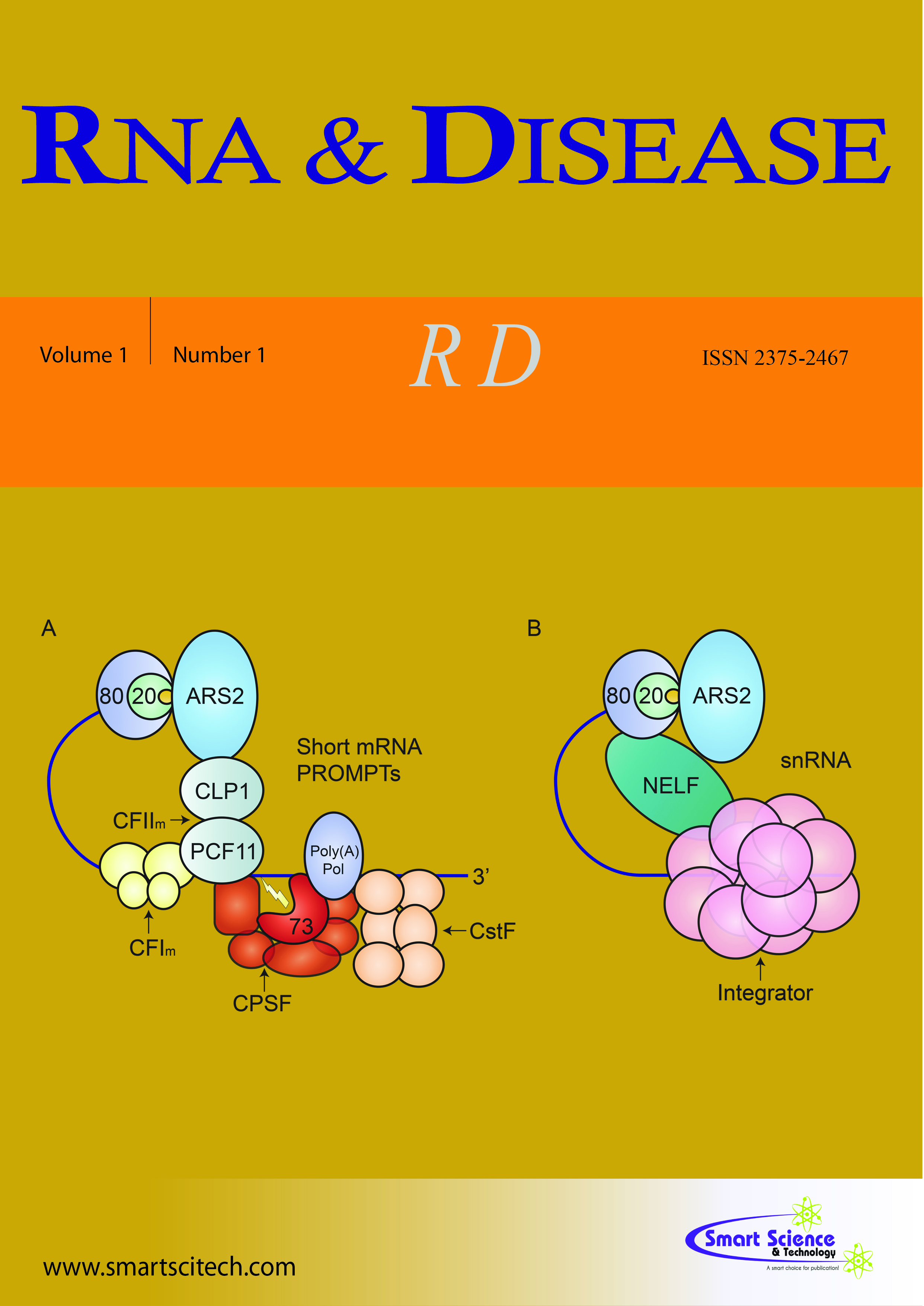microRNAs control the function of telomeres in cancer
DOI: 10.14800/rd.282
Abstract
Telomeres are located at the end of chromosomes and consist of DNA tandem repeats that recruit the specialized protein complex “shelterin”. Shelterin has a crucial role in controlling chromosome end protection, telomere recombination and telomere length. Telomeres shorten with every cell division, finally leading to telomere-dysfunction and the induction of senescence or apoptosis. Cancer formation is paralleled by a change in telomere regulation. Re-activation of telomerase ensures the maintenance of telomere function to facilitate unlimited proliferative potential. Importantly, aberrant function of the shelterin complex contributes to tumor formation and genomic instability in human cancer. miRNAs are important regulators of central cancer pathways and are of high clinical relevance. We recently showed that the onco-microRNA miR-155 controls the expression of TRF1 in human breast cancer to promote increased telomere fragility and genomic instability. Importantly, low TRF1 expression correlates with poor prognosis in estrogen receptor positive cancer patients, underlining the clinical relevance of miR-155 dependent regulation of TRF1 in human breast cancer. Our work suggests that multiple miRNAs exist that control telomere function in telomere related pathologies. Identification and functional validation of “telo-miRNAs” is expected to open new avenues in the understanding of telomere related maladies such as cancer and aging.












